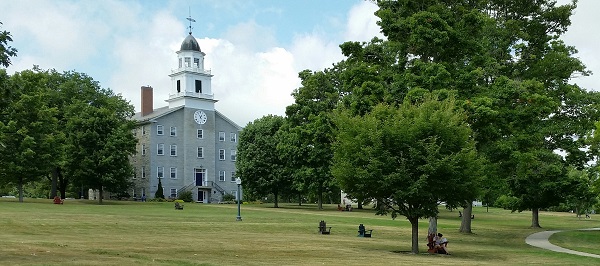In our house the countdown starts on the Sunday after Thanksgiving. The day our kids go back to college/school after Turkey Day is when we start thinking about having them home for the extended holiday break. We circle their respective dates of return on the calendar and allow our spirits to be lifted by the promise of three weeks of family dinners, game nights by the fire, trips to the movies, and when the weather cooperates maybe even a day or two on the ski slopes at nearby Sugarloaf.
Like many American families we have our established holiday routines. Festive gatherings with friends. A traditional meal – for us it is the seven fishes dinner on Christmas Eve that was the single most important gathering of the year for Marnie’s (my wife) family. And an annual visit from my brother-in-law (still Uncle John to our 18 and 22 year-old boys) and his wife, Pam, that we all relish. We revel in the chaotic familiarity of the holidays, enjoy the good company, and eat more than we should.
But mostly we can’t wait to have the boys home from school for the better part of a month. All that quality time. All those enlightening and pithy conversations about the courses and exams and papers just completed. The entertaining anecdotes about college hijinks and campus controversies and social escapades (at least what they are willing to share). Imagining their holiday homecoming is a wonderful brand of anticipation that builds and blossoms – sort of an adult version of waiting for Santa Claus. So, by the time they actually get home the holiday break we have imagined has taken on mythic qualities replete with soft lighting, a stirring soundtrack, and poignant, heartfelt monologues just waiting for the right moment to be delivered.
Then the boys come home.
They shuffle out of the car, deposit 300 pounds of dirty laundry in the front hall, give their mother a half-hearted one-arm hug, ask what’s for dinner, and disappear upstairs until it’s time to eat. For the next few days they sleep until mid-afternoon and hole up in their rooms with the shades down like vampires avoiding daylight. When they do periodically emerge from the darkness, it is to eat (usually some combination of donuts, chips, cold pizza, baby carrots, and cookies), ask what’s for dinner again, look for the wifi password, and grab three more half-full drinking glasses they can leave in random locations around the house. Most evenings they do actually join us in the family room – it’s closer to the refrigerator and by that time of day they don’t go as long between feedings – and can even be coaxed into playing a game or watching a movie as long as doing so doesn’t interrupt the seemingly endless text conversations they are carrying on with who knows how many different people peppered across the country.
And don’t get me wrong, we know we’re among the lucky parents. We live in central Maine. Most nights it’s somewhere between 0 – 10° above and they would rather sit by the fire in our living room than venture out – especially when relatively few of their friends are in town. So we do see them a lot.
Last week my sister, who lives in Connecticut, had to post a missing persons report on Facebook two days after my nephew got home following his freshman fall in college. He’d gone out to see high school friends the first night back and hadn’t seen or spoken to his mother since. (If you’re reading this Kevin, you’re in trouble. Go home and hug your mother. It’s Christmas and she pays the tuition bills.)
I’ve also heard tales of college students lying in bed and texting lunch requests to their mothers down the hall in the kitchen. Good luck with that. Reclusive and spoiled as our boys can be, they understand that attempting such a maneuver with their mother would result in more clothes in need of washing after she dumped a half-full glass of (choose one: milk, Gatorade, or orange juice) over their heads.
Okay, I might be exaggerating a smidge.
In fact, we fact we have lots of interesting discussions about our kids’ classes. (Yesterday I took the boys out for lunch and was privy to a fascinating sibling debate about Descartes, Locke, and the relative merits of egoism.) We also hear humorous stories about their away-at-school antics – none of which violate any rules or state laws as far as we know. Oh yeah, they actually do know the wifi password and usually only take two half-full drinking glasses to leave around the house at a time.
So, the holiday break doesn’t ever turn out to be the Hallmark Hall of Fame holiday movie special event I imagine it to be. There is precious little soft lighting. The competing noise of YouTube videos, Christmas music, and whatever is on the television at any given moment doesn’t make for a particularly moving soundtrack. And there is far more bickering about dirty laundry, discarded dishes, and who ate the last toll house cookie than heartfelt expressions of familial love.
In other words, it is way better than the Hallmark version.
Best wishes to all of you who are home for the holidays. Stay warm, travel safely, and have a happy and healthy new year.
